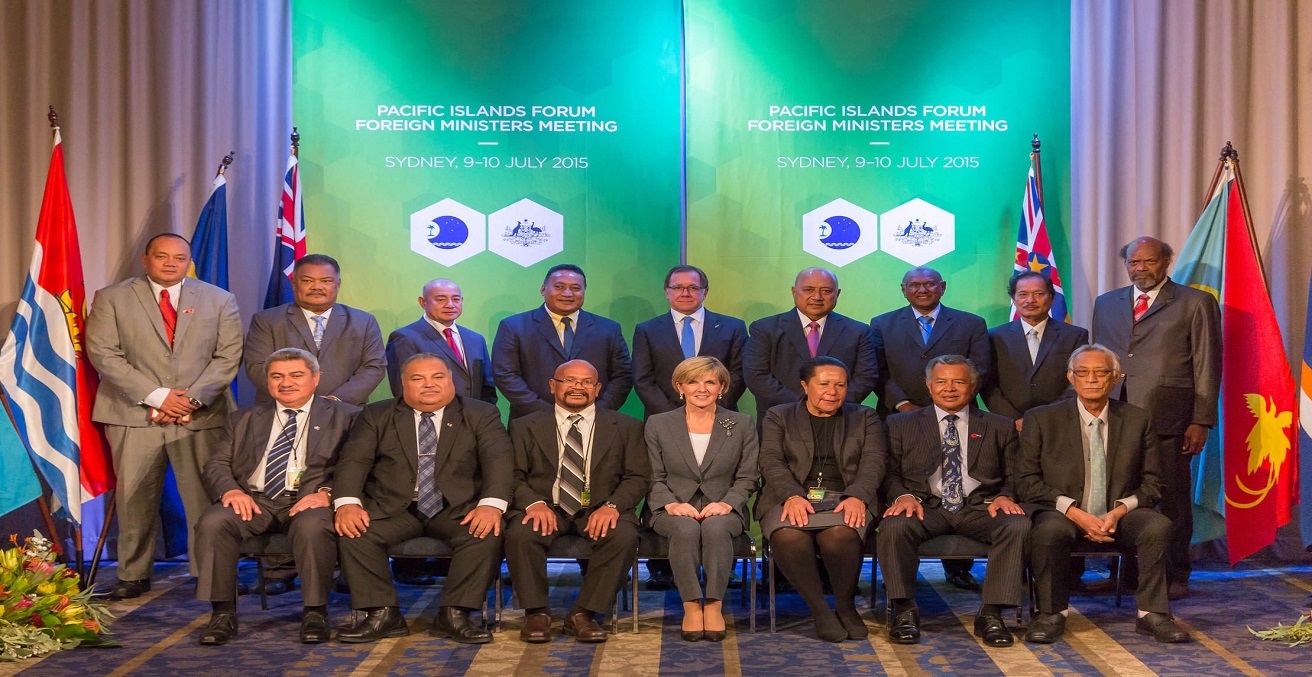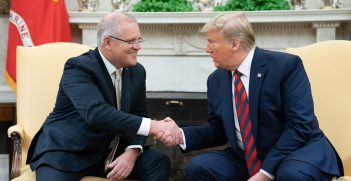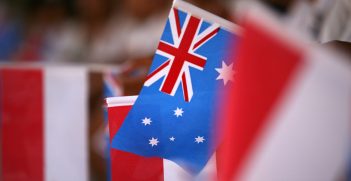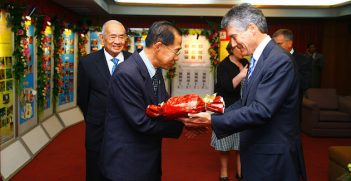Turnbull Takes Part in Reinvigorated Pacific Islands Forum

Prime Minister Malcolm Turnbull is attending the Pacific Islands Forum but, with climate change and security on the agenda, will he get a warm welcome?
Barring unforeseen circumstances – and these days perhaps one shouldn’t talk too soon – Prime Minister Malcolm Turnbull will fly to Samoa to attend the annual Pacific Islands Forum Leaders’ Meeting. In fact, the prime minister will only arrive at the tail end of what these days is a week-long suite of meetings but he will be in Samoa for the core event, the Leaders’ Retreat, on Friday 8 September.
The retreat is in many senses the essence of the forum; it’s where leaders meet without officials for an unscripted and private discussion. It’s where much of the key business of the forum is done: where deals are struck and compromises made. And it’s where personal relationships count.
Australian prime ministerial attendance at the forum is a necessary, if not a sufficient, condition for maintaining healthy relations with a region that Australia says is important to it. This will be the prime minister’s second consecutive forum, which is a good, albeit short, track record. After a slow start, the government has recently showed signs of a more thoughtful and purposeful approach to its relations with the Pacific.
Minister for Foreign Affairs Julie Bishop’s recent speech in Suva was noteworthy in this regard, outlining a tripartite approach including closer cooperation on security issues, better people-to-people links and greater economic integration through easier access for Pacific Islanders to Australia’s labour market. The prime minister’s announcements at the forum on these fronts will bear close watching.
A new framework
It would be an exaggeration to say that the forum itself is experiencing a Golden Age, but there’s no doubt that fresh winds have been blowing through the organisation in recent years. This follows a major review of the forum in 2013, which resulted in a new Framework for Pacific Regionalism being adopted the following year.
The framework was aimed at injecting greater purpose and focus into Pacific regionalism, which was seen as having fallen prey to a technocratic agenda and to have led the forum astray from its founders’ original vision. In 2014, there was also the appointment of a new forum secretary general, PNG’s Dame Meg Taylor.
Spurred by the framework, and by increasingly assertive sub-regional agencies, Taylor’s tenure has seen the forum reinvigorate both its processes and its thinking about the region. That hasn’t necessarily always been comfortable for all forum members. For instance, the forum now gives greater access to private sector and civil society voices in its annual meeting cycle. One of the consequences of this has been to give greater prominence to issues such as the status of West Papua within Indonesia, something that a number of forum members (notably PNG and Fiji, as well as Australia and New Zealand) would prefer not be on the agenda. That said, on balance Taylor appears to have succeeded in broadening the forum’s accessibility and legitimacy across the region.
In a similar vein, last year both New Caledonia and French Polynesia were admitted as new members of the forum. This decision came as a surprise to many observers given that the forum has previously been restricted to independent and, with the partial exception of Vanuatu, Anglophone states; it brought the membership of the forum to 18.
The implications of including these two French territories in the forum are still working their way through the system. To cite just one example, some forum countries have been worried that commercially sensitive information about Pacific fisheries could leak to the EU via these territories. The full impact of the forum’s expanded membership is yet to play out.
Big ideas for the Pacific
What’s on the region’s agenda? The theme of this year’s forum is ‘The Blue Pacific’. This is part of an ambitious attempt to reshape thinking about the Pacific away from ideas about smallness, remoteness, vulnerability and aid dependence, and to reimagine the region instead as an “ocean continent”. Such ideas aren’t necessarily new but Taylor and the forum secretariat have been especially active in advocating these ideas and bringing this agenda into focus in the region and more broadly (for instance in helping to shape the UN Ocean Conference).
This is a welcome ambition and we should expect to hear more of it. Even so, much of the energy of Pacific diplomacy remains focussed on maximising aid flows and concessional financing. Even the forum secretariat’s own State of Pacific Regionalism Report 2017 acknowledges the Pacific’s, “unique vulnerabilities and dependencies”, a reminder of the enormous development challenges that face much of the region.
With the UN Climate Change Conference (COP23) to be held in Germany in November this year, climate change will of course remain very high on the agenda of forum leaders. Given current policy settings it’s inevitable that there will be some daylight between the positions of Australia and New Zealand on the one hand and that of the island countries on the other. The forum has regularly been accused of producing lowest common denominator outcomes on the question of climate change and of failing to lead on the issue internationally.
This year, US President Donald Trump’s decision to withdraw the US from the Paris Agreement may provide some common ground for forum members. While climate change in general looks set to remain a point of difference, it’s an issue that the forum has managed in the past and there is no reason that will not be the case this year.
Forum members are generally patting themselves on the back following the conclusion of the Regional Assistance Mission to Solomon Islands (RAMSI) in mid-2017. This appears to have given impetus to a willingness to look at how cooperation on security issues might be further advanced. Julie Bishop’s Suva speech highlighted better cooperation on intelligence sharing, both between forum countries and among agencies in individual countries; this should be reflected in the forum communique.
Fiji’s Prime Minister Frank Bainimarama has boycotted forum summits since Fiji’s suspension from the organisation was lifted in 2014 on the grounds that the grouping is overly influenced by Australia and New Zealand. He even set up the Pacific Islands Development Forum (PIDF), an organisation intended to rival the forum (and without Australia and New Zealand as members).
But Bainimarama seems to have painted himself into a corner with his stance and his challenge to the forum seems to be petering out with the PIDF failing to attract wide membership or even to hold a summit meeting this year. Forum members would prefer him at the table, but they won’t lose sleep over the fact that he’ll be represented in Apia by a minister instead.
Differences of opinion within the forum don’t always occur on a fault line between Australia and New Zealand on the one hand and the island states on the other. Indeed, the easy category of island states obscures the individuality of those states, notwithstanding their many shared interests.
The forum means different things to different members, and individual members have their own interests to pursue. But it can be argued that that’s part of its strength. It remains indispensable as an arena for political dialogue both for its members and for its many dialogue partners who attend the Post-Forum Dialogue.
As it heads towards 50, the forum is at a fascinating stage of its history. It’s welcome news that the Australian prime minister will be there to take part in it.
James Batley is a distinguished policy fellow in the Coral Bell School of Asia Pacific Affairs at the Australian National University. He is a former Deputy Director-General of AusAID, High Commissioner to Solomon Islands, Ambassador to East Timor, leader of the Regional Assistance Mission to Solomon Islands (RAMSI) and High Commissioner to Fiji and Permanent Representative to the Pacific Islands Forum Secretariat.
This article is published under a Creative Commons Licence and may be republished with attribution.





